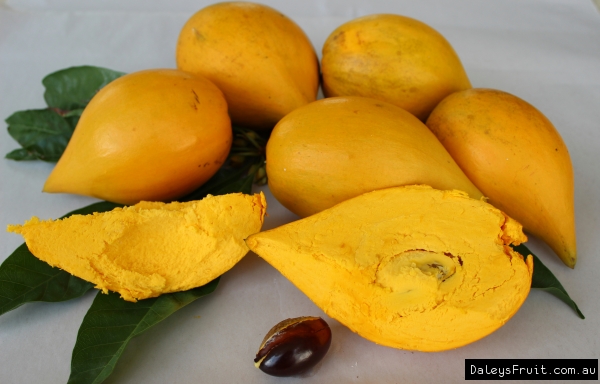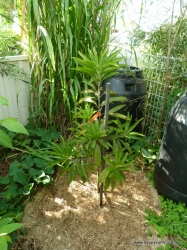Canistel Aurea
Pouteria campechiana$79.00
Specifications of Canistel Aurea
Preferred Climate Tropical, SubtropicalLearn About Climate Zones
Grown From GraftedLearn About Propagation Methods
Max Height (when in the ground with good conditions) +10m
Plants required to Pollinate 1 (Self Pollinating)Learn about Pollination
Can it Handle Frosts? Likes Temps above 5deg
Amount of leaves in Winter? All Leaves (Evergreen)
Suitability in Pots Yes
Water Requirements Moderate Watering
Fruiting/Harvest Months February, March, April, May, June, November, December
Customers also bought
These plants are often purchased together. Also check plant information for suitability in your orchard.
Custard Apple - Paxton Prolific
$89.00 ($89.00-$99.00 choose a size)
Dwarf Mulberry - Red Shahtoot
$54.00 ($29.00-$99.00 choose a size)
Carambola Starfruit - Thai Knight
$59.00
Plum - Iluka Blood
$49.00 ($39.00-$49.00 choose a size)
Jakfruit - Rajhan
$99.00 ($79.00-$99.00 choose a size)
Lime - Australian Desert 'Standout' PBR
$89.00
Customer Tips & Reviews Canistel Aurea
Unanderra, NSW, Australia
Slow and steady performer. It has survive a couple of winters now here in Wollongong. Flowers appearing for the first time May 2010.
Canistel Aurea
Aurea may not like the cold in Toowoomba, 27S, 600m altitude. Two dead in two winters, But I'm trying different cultivars and I'll let you all know if one ever lives.



























